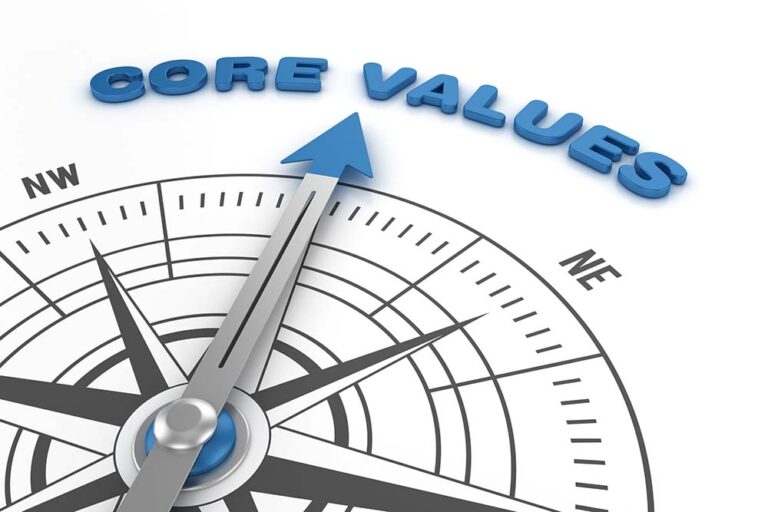“Why didn’t you tell me?”
A team member stood in his manager’s office asking this question. He had just learned that a more senior internal role for which he had interviewed was given to a colleague instead of him. His manager had put off telling him, dreading the conversation with his direct report about not being selected for the opportunity. Now it was too late. The newly promoted colleague had shared the news with others, and it was all over the office.
By procrastinating for too long, the manager had created a much bigger problem. He damaged a key relationship and eroded trust in his leadership by failing to take responsibility for and communicating an important decision.
The recovery was challenging.
The first step to recovery in this situation is to take personal accountability by apologizing to the team member. This is something that is not done often, but it is necessary to begin to repair the relationship and the leaders’ credibility. If left unaddressed, word will spread about the leader’s lack of managerial courage. Furthermore, the direct report will feel unsupported and will be difficult to coach going forward. A poorly handled situation like this can turn an engaged team member into a flight risk for the organization.
The difference between a positive outcome or a negative outcome in this situation is clear: Personal accountability.
Being personally accountable means that you are answerable for your actions and their outcomes, whether positive or negative.
Personal accountability may seem more like a quality to be cultivated in individuals personally, like integrity, rather than a trait for leaders to cultivate professionally. But it is growing in importance as a key competency for manager levels and above.
In essence, being personally accountable means that you are answerable for your actions and their outcomes. That encompasses all actions and all outcomes, positive or negative. That could involve business results for a department or team, or a joke or comment made in a staff meeting.
There are reasons why someone did or did not do something, and then there are excuses. If you have a reason for being late, missing a deadline, or falling short of a goal, you can still take accountability for the outcome. When you give an excuse, you dodge responsibility by placing the blame elsewhere.
Someone didn’t give me the information I needed.
Someone didn’t send me the correct meeting link.
Someone didn’t do their part, so I couldn’t do mine.
These are excuses and that hit the same note over and over: It wasn’t me; it wasn’t me; it wasn’t me.
The foundation of personal accountability is honoring your commitments and dedicating yourself to being better tomorrow than you were today. Leaders who are personally accountable say “It was me,” and either build on success or course correct to improve future outcomes.
Accountable employees look for solutions to put out a fire (it’s everyone’s job) rather than standing back and watching it burn (not my job.)
Leaders with Personal Accountability…
- Take ownership of responsibilities
- Persevere to achieve results
- Admit mistakes and make changes to improve themselves or their work
- Make positive change before expecting it from others
- Address tough topics in a timely manner with candor and respect
Leaders who Lack Personal Accountability…
- Blame others or external factors when things don’t go as planned
- Have a “things don’t go my way” attitude, play the victim
- Don’t prepare for challenges
- Present an “it’s not my job” mentality
- Focus on things that can’t be controlled rather than proactive strategy
How can today’s leaders increase their personal accountability and cultivate a culture in which all team members own their actions and outcomes, for the betterment of their organization? Model personal accountability in everyday work, every day. Accountable employees look for solutions to put out a fire (it’s everyone’s job) rather than standing back and watching it burn (not my job.) When team members know that personal accountability and individual contributions to solutions are valued and expected, the entire culture of an organization transforms.
I once worked for a leader that expected you to tell them bad news. But they also expected you to tell them a few more things. They wanted to hear not just what happened, but how you corrected the problem, what else needed to be done, how the leader could help, and the expected results. There was no “I told you so” proclamations. There was no blaming or scolding. This leader enabled team members to focus on taking personal accountability and responsibility. By removing fear of failure, this leader supported greater success.
Here are eight ways to live into personal accountability as a leader.
Personal Accountability in Action
1. Walk the walk and talk the talk
Say what you mean. Do what you said you would. If you promised a team member that you’d help with a project, honor the commitment. If you said you’d make a connection, research information, or follow up on a need, complete the commitment.
2. Fulfill all your responsibilities
If it’s part of your role, do it. Don’t let your duties trickle down to others because you avoid them or put them off for so long that someone else has to step in.
3. Admit fault
Refusing to accept responsibility when something goes amiss shows a clear lack of self-awareness, an essential leadership trait. Don’t hide from mistakes and others won’t either. If you believe that you didn’t do anything wrong, collect all the facts to confirm. If an error was not entirely your fault, acknowledge what you did or did not do in this situation. Never play the blame game.
4. Prepare and participate
Offer your skills. Provide help. Whether your organization’s performance is looking up or trending downward, be there and contribute. Team members who hide when the going gets tough or don’t come to work ready to support productive collaboration don’t display personal accountability.
5. Share candidly and respectfully
No one else can share your perspective but you. Speak up when you can provide insights and information that others don’t have. It’s your responsibility to raise questions and concerns or provide alternatives and additional ideas before decisions are made.
6. Own all your ideas
Have a crazy thought that everyone hates? Own it. Have the most amazing idea that leads to a win? Own that one, too. Showing conviction in your ideas — and not passing off the clunkers as if they were someone else’s — encourages more ideation and sharing. This cultivates innovation.
7. Communicate clearly with your collaborators
Get clear about what is expected of you and when. Communicate the same to others who have commitments to you. Transparency in who is doing what supports trust in the process and its outcomes. Articulate your ideas and instructions concisely so others can learn from you and know what you expect. If there is confusion, restate and confirm mutual understanding before moving on.
8. Handle your emotions and disagreements maturely
We are all responsible for our actions and reactions. Although disagreements and disputes in the workplace are inevitable, handling them calmly and maturely ensures everyone can move on effectively. Offer and receive apologies with sincerity and grace.
When it is not focused on scorekeeping, but instead helping one another to be our best, personal accountability can drive innovation and excellence, while also supporting equity within your organization. But for it to truly take root within your culture, it has to start with leadership.
Recognize that the responsibility begins and ends with me!








